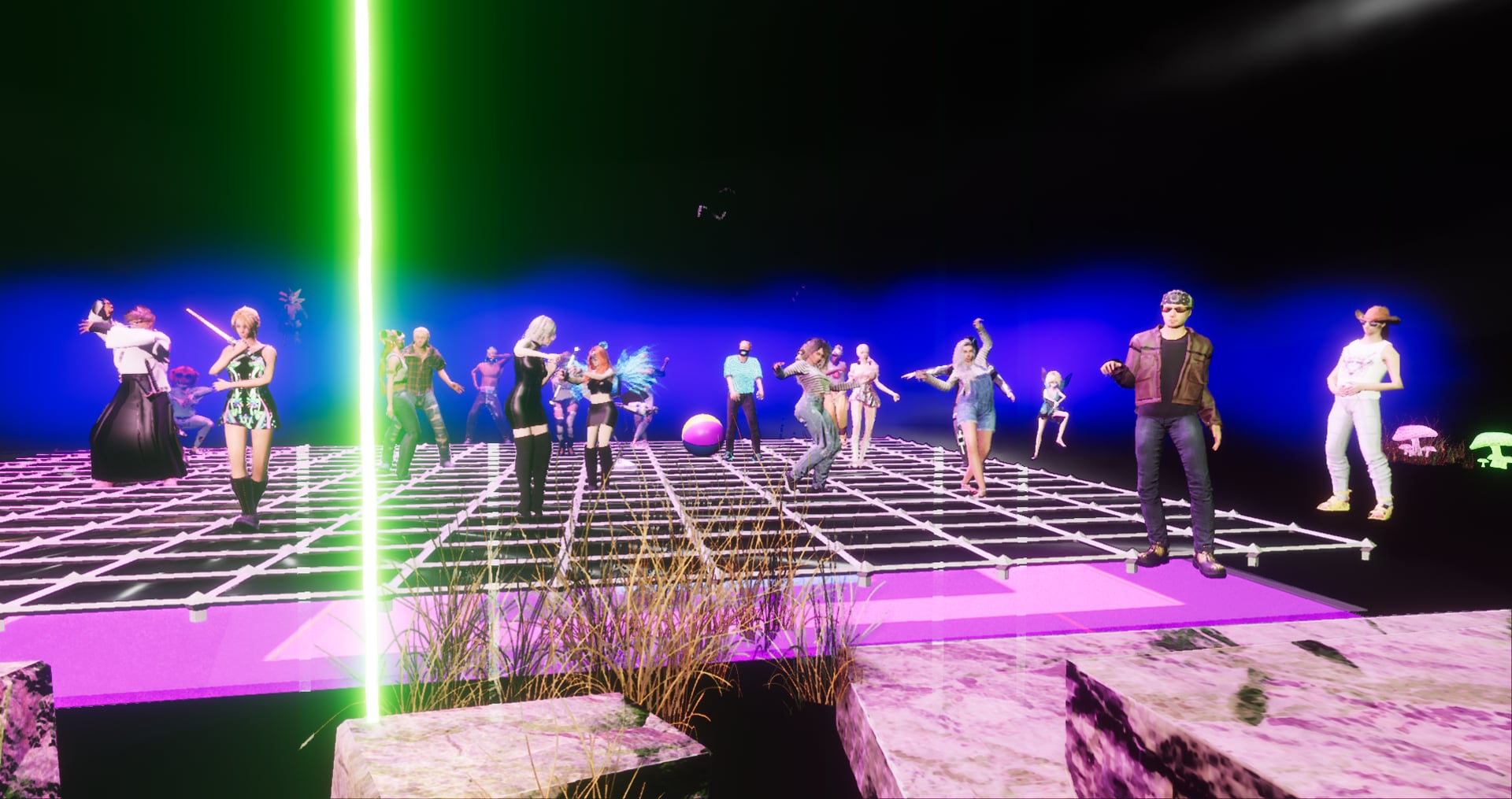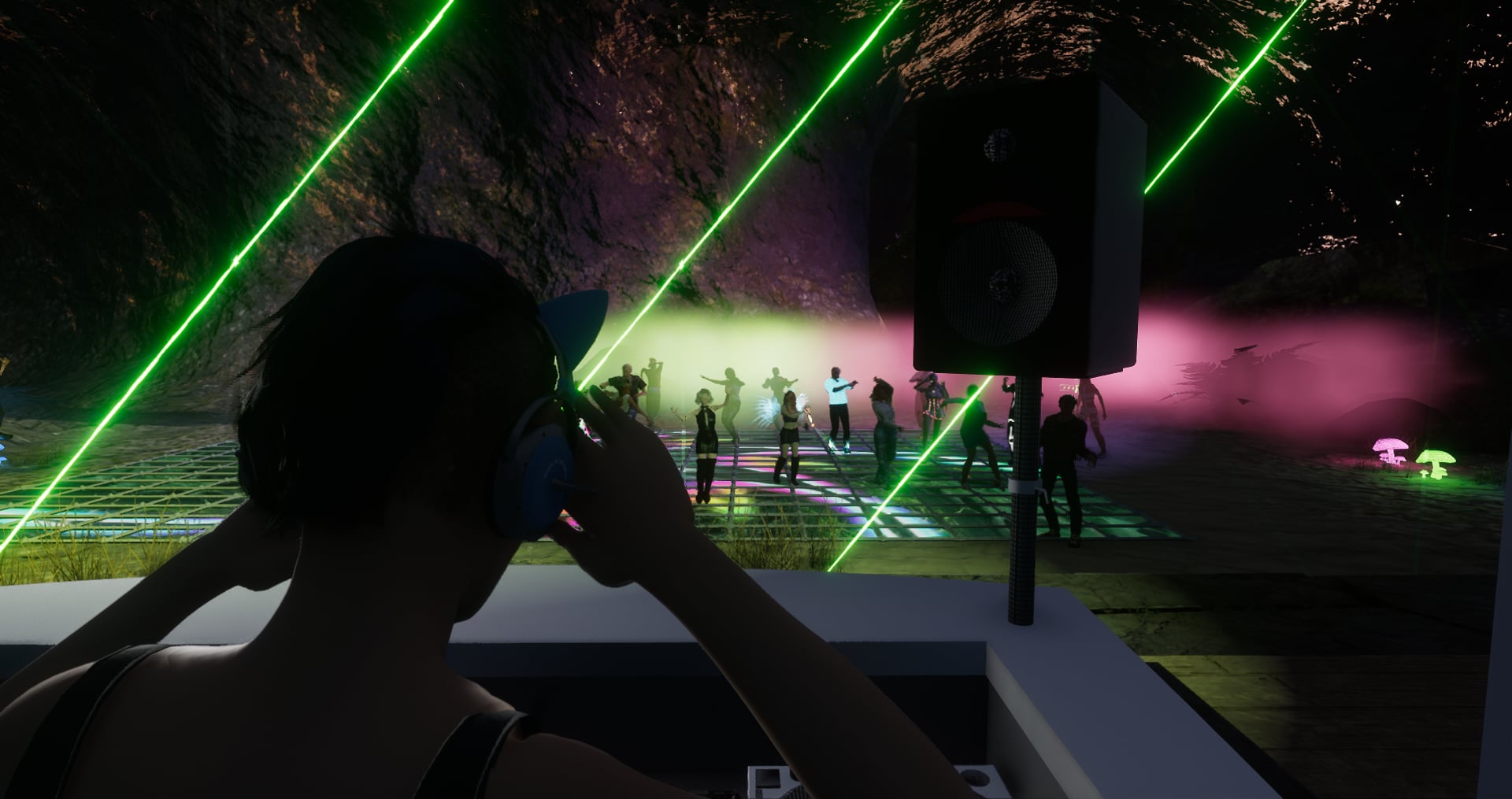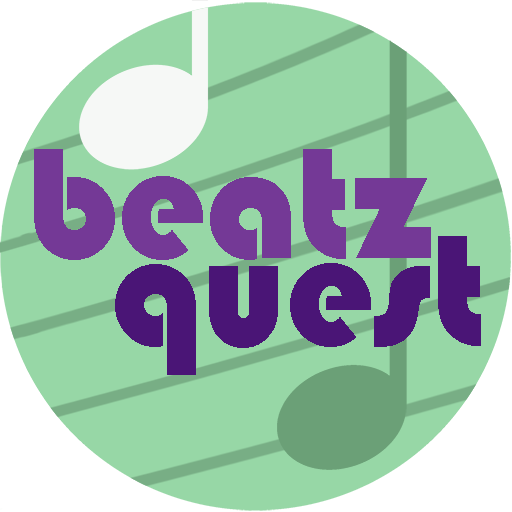I originally thought that this blog post would be a survey of playing live music and DJ sets in Virtual Worlds. So, I started building a chart that had features of various virtual world platforms and then compared the features that each software had for playing and listening to live music. As I started to do this, I realized that I was quickly abandoning the whole reason for this blog and the Music Oasis in general. Our guiding principles laid out in our first blog were to:

I was writing a blog that was going to characterize the Live Virtual Music Scene and immediately I broke it down by Virtual World Platforms and compared them. This does not sound like an “Agnostic Guide” approach to me. Why did I immediately fall into this siloed, fractured approach? I concluded it was because Virtual Music is siloed because the Virtual World software it is running on (Second Life, Sansar, altSpaceVR, etc) is disparate, non-standardized and fractured . So, I decided to try and come up with a real-life analogy for the current state of virtual music initially from a music fan’s perspective.
From a Fans perspective, it is lot like living in a small town that has a couple of clubs in it that have live music and you subscribe to the local newspaper which has a section listing the different things going on around town including music events. There are other small towns around you that have music clubs, but you don’t subscribe to that town’s newspaper, so, you don’t know who is playing when and where. Also, to take the analogy farther instead of the virtual worlds being small towns they are really more like small countries or maybe even small planets as the way you get dressed in them, walk around them, dance, chat, talk, etc., are all different. Basically, you don’t speak the same language as the people in the other world, you can’t wear “your” clothes as you did in “your” home world and your avatar doesn’t look like the same and therefore you lose your sense of identity.

From a Musician’s perspective, Social Virtual Worlds that have music provide a place where people that are listening to you can interact with each other instead of just passively watching you on You Tube by themselves. This is a good thing. But, because of the silos and the burden of moving from world to world, the people coming to the events are almost always already long-term residents of that Virtual World. Also they primarily are interested only in their Virtual World Platform because these worlds are not interoperable and it takes so much time, effort, money and energy to even settle into one world, people don’t have the bandwidth to invest time and effort into multiple worlds. In fact, their “brand loyalty” often leads them to actively disparage other virtual worlds.

What does this mean for musicians and DJs? Well it means you must currently approach it like you would if you were a musician/DJ you must think like you are playing in a small town or club. Small town clubs are more intimate. You get to know who “lives” there. That means you must engage with your friends while you play. Like when I was in a small-town playing gigs that meant that we took long breaks and talked with the club goers and well we became friends with them. That also meant you also got a lot more free drinks while playing …. LOL. I certainly enjoy these new friendships that have happened because of playing in these small virtual world clubs.
Unfortunately, because your “small town virtual club” is pretty isolated, so very rarely are there first-time or casual visitors. And quite frankly these new visitors seldom come back. The dreaded retention rate which is the goal of all Virtual World Platform providers. This means just like in the real life small town club musician analogy while it was always fun to have a drink with your friends between sets, if you wanted to grow your fan base you had to make friends with the new people in the club. In fact, you must go out of your way to make these people welcome and provide an easy way for these people to come back to a future show. In Virtual Worlds a lot of the new visitors coming to watch you are not long-time residents they are first time visitors to that virtual world and they just watching you because there is a lot of people in the club. They often stay off to the side because they don’t know how to use the software (i.e. the how do you dance question). Since you are a musician or DJ you are too busy during the performance and hence the need for a Greeter (a person that engages these newcomers when you are busy playing).
Just like there are newcomer potential fans at these Virtual Word Small clubs there are also potentially newcomer Musicians & DJs. As a new musician/DJ, you face the same barriers of non-standardized, disparate virtual world platforms that your fans face. Each one is different in how you hook your music into it and perform in it. Each is different in terms of how you promote your playing in it. Each has unique ways of getting paid (if they have any mechanisms at all).

That is why the Music Oasis Project was started. We want to start to bring down these barriers and make it easier for musicians and DJs to build their Fan bases across multiple Virtual Worlds. We believe in the Metaverse as a concept and we know that no one Virtual World Platform will do this on their own. They all hope to become the dominate force (basically the Microsoft of Virtual Worlds). Because of this they feel all their efforts are proprietary and there is no movement between them to standardize and make it easier for people to move from one platform to another. We feel that this has been very short-sighted of the companies because this continued fracturing has led to a real waste of effort on their parts.
Electronic Musicians understand this in a weird way. The electronic music creation scene was much like this fractured approach. Every synth you used to buy connected with a unique protocol from the keyboard. It was like computer networks before the internet. There was a bunch of companies and they each jealously guarded their protocols and required you to buy their synth with their keyboard attached to them. So, if you remember seeing pictures of synth players from the 1980’s they had stacks of keyboards to play the different sounds they wanted. Then Roland took mercy on the poor keyboardist who was hauling around 5 synths around to their gigs and proposed a standard that all synth companies should adopt called MIDI. Even though some manufacturers had to be dragged in kicking and screaming, they soon came to realize that it was a win for them as more people started buying their products because of the sounds they produced. One keyboard could now drive many synthesizers. They unhooked the sounds the synths made from the way that a person interacted with the synth (the keyboard).
I believe the same sort of thing would be true if Virtual World Platform Companies took this approach. To analogize with my MIDI example, your avatar and how your avatar moves in the world is the keyboard and the Virtual Worlds you are visiting is the synth that is creating the sound. You should have a “universal” avatar that can visit each of these virtual world “small towns” and not feel so alien. But, we aren’t going to hold our breath waiting on this to happen.
The best we can do is try to make it easier for Musicians and Fans move from world to world and that is what we will do at the Music Oasis. We are going to figure out how to allow Musicians and DJs to play in small towns at the same time!
